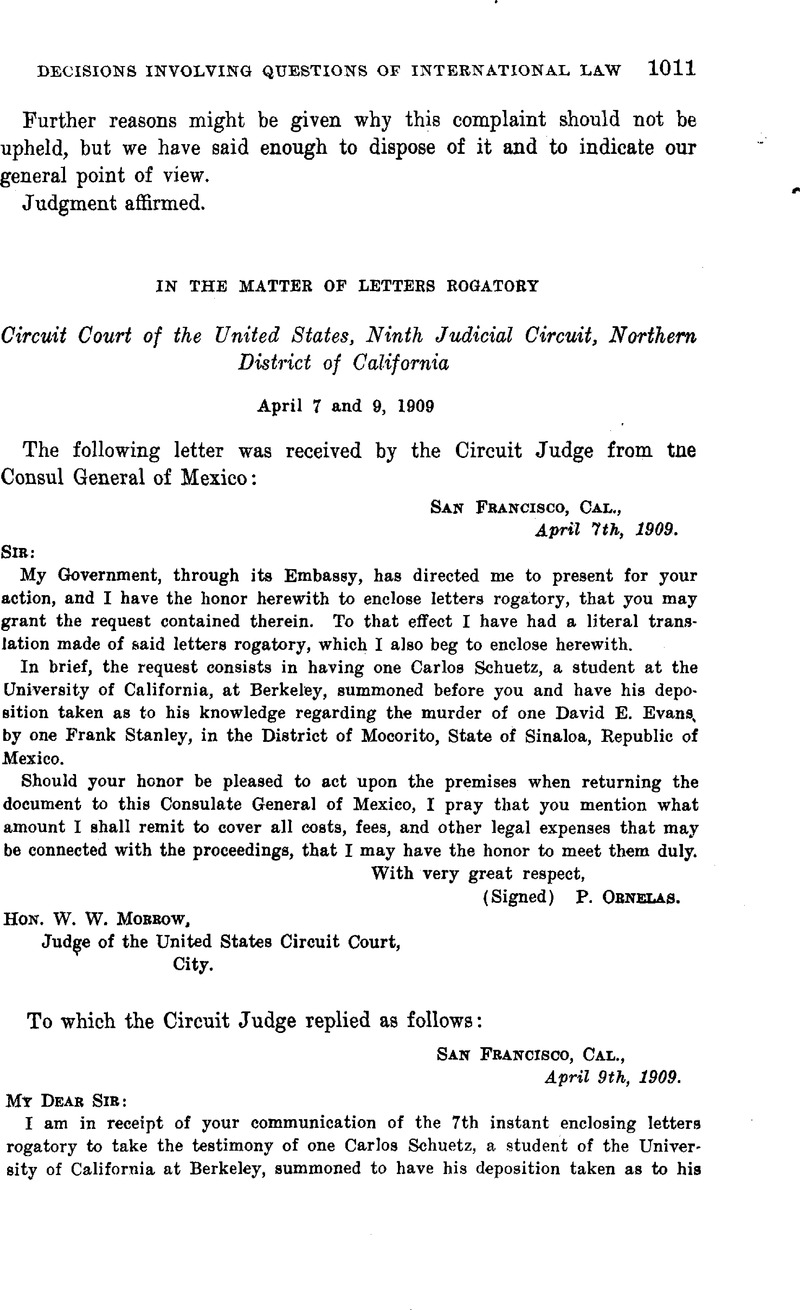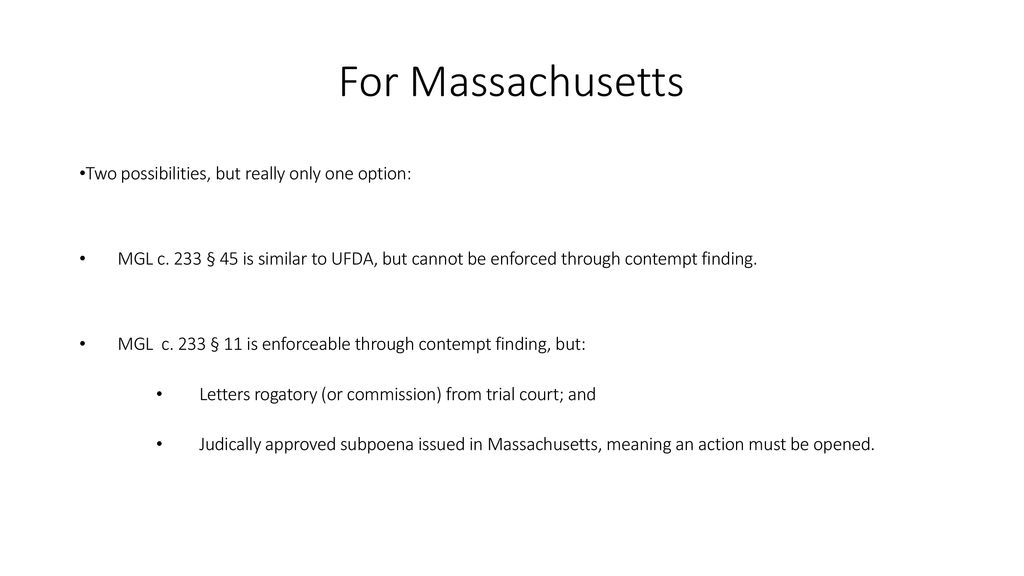Letters Rogatory vs. Mutual Legal Aid Treaties: Trick Differences Clarified
What You Need to Find Out About Letters Rogatory in Cross-Border Situations

Interpretation of Letters Rogatory
Letters rogatory are official requests made by a court in one jurisdiction to the suitable judicial authority in an additional territory, seeking aid in acquiring evidence or offering legal records. This legal tool is particularly significant in cross-border situations where direct interaction between judicial authorities is either not practical or not allowed because of lawful restrictions.
Generally, letters rogatory are utilized in criminal and civil matters, enabling courts to ask for the collection of statement, documents, or other relevant products from outside their jurisdiction. The procedure starts when a court determines the demand for evidence that can not be collected locally. Following this, the requesting court prepares a formal letter describing the particular details or action needed, ensuring compliance with both territories' lawful standards.
As soon as submitted, the recipient court examines the demand and conducts the needed proceedings based on its very own laws (Letters rogatory). The efficiency of letters rogatory counts heavily on worldwide treaties and arrangements, which facilitate teamwork amongst nations. This mechanism highlights the value of common legal support in maintaining justice throughout boundaries, ensuring that legal processes are not impeded by geographical borders
Objective and Importance
Helping with worldwide teamwork, letters rogatory offer an essential objective in the realm of cross-border legal process. They operate as official demands from a court in one jurisdiction to a court in another, seeking support in gathering evidence or performing exams relevant to a situation. This system is important when a celebration needs to acquire statement or files located outside their very own territory, ensuring that lawful procedures are not prevented by geographical borders.
The relevance of letters rogatory can not be overemphasized, as they play a crucial function in supporting the stability of legal systems throughout nations. By giving an organized method for international collaboration, these letters help to keep regard for every nation's sovereignty while facilitating the exploration procedure essential for reasonable tests. They likewise ensure that proof is gathered in a way that abides by the lawful requirements and procedures of the asking for jurisdiction.

Refine of Issuing Letters Rogatory
The procedure of issuing letters rogatory involves a number of essential actions that need to be diligently complied with to make certain conformity with both global and residential lawful criteria. At first, a request for help should be prepared, detailing the certain evidence or statement sought from the foreign territory. This request ought to clearly mention the realities of the situation, the significance of the evidence, and the legal basis for the request.
As soon as the demand is drafted, it is usually submitted to a residential court or pertinent authority for approval. The court may assess the demand to ensure it sticks to step-by-step demands and lines up with international treaties or conventions controling shared legal assistance.
Upon authorization, the request is officially equated into the language of the international jurisdiction, as required - Letters rogatory. Ultimately, the letters rogatory are sent to the ideal foreign authority, frequently via central authorities or polite channels marked for such purposes
Obstacles and Limitations
In cross-border legal process, navigating the obstacles and limitations of letters rogatory can significantly affect the effectiveness of proof gathering. One read significant challenge is the varying lawful requirements and step-by-step requirements throughout territories. Different countries may have distinctive guidelines regarding the admissibility of evidence, which can make complex the execution of letters rogatory.
Furthermore, the time needed to refine these requests can be significant. Delays in the foreign jurisdiction may impede prompt access to essential evidence, which can endanger the total case. Language barriers additionally position considerable challenges; guaranteeing exact translation of documents and testimony is necessary yet can introduce extra difficulties and potential misconceptions.
Moreover, there is commonly a lack of reciprocity in the therapy of letters rogatory. Some territories may not identify or prioritize such requests, causing prospective refusals or insufficient conformity. Finally, diplomatic or political considerations may additionally affect the readiness of a foreign nation to work together, especially in sensitive cases. These difficulties require cautious planning and consideration by attorneys taken part in cross-border lawsuits.
Finest Practices for Legal Professionals
Effective strategies for lawful experts browsing letters rogatory in cross-border instances can substantially enhance the possibility of effective evidence gathering. It is vital to completely understand the lawful frameworks and step-by-step demands of both jurisdictions included. This knowledge will assist in drafting a clear and specific request that straightens with the receiving nation's legal criteria.
Next, developing strong interaction with foreign lawful agents can facilitate the procedure. Involving regional guidance who are acquainted with the nuances of their lawful system can provide very useful insights and aid browse potential risks. It is also helpful to include extensive information about the evidence looked for, ensuring that it is appropriate and necessary for the situation.

Final Thought
In recap, letters rogatory serve as an important system for getting proof in cross-border legal matters. Ultimately, comprehending the subtleties of letters rogatory is crucial for legal professionals engaged in international see this litigation.
Letters rogatory play an important duty in facilitating the exchange of evidence across international borders, serving as a bridge between disparate legal systems. As we explore finest methods and the nuances of this legal mechanism, it becomes Related Site clear that proficiency of letters rogatory is indispensable for effective international lawful technique.
In cross-border lawful process, browsing the difficulties and restrictions of letters rogatory can substantially affect the efficiency of evidence gathering.Effective strategies for lawful professionals navigating letters rogatory in cross-border cases can substantially boost the chance of effective evidence gathering.In recap, letters rogatory offer as a crucial system for obtaining proof in cross-border lawful matters.